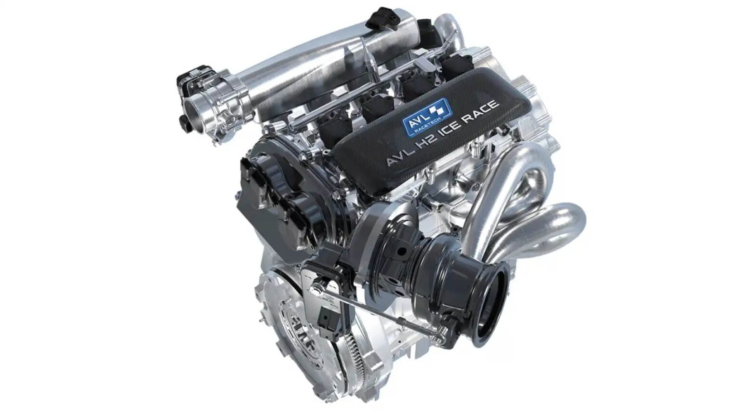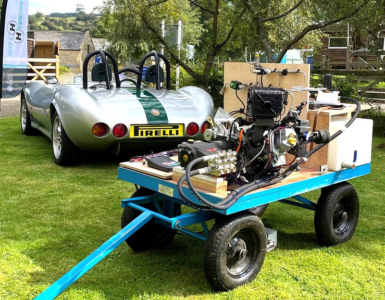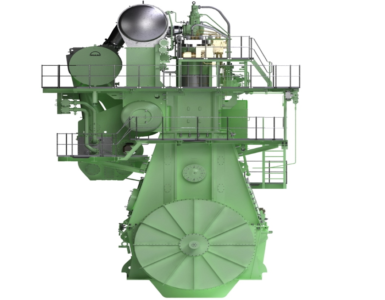The hope of the automotive industry lies in this hydrogen engine – it has more than 400 HP – Lagrada.
A recent breakthrough in hydrogen engine technology has given some hope for the future of internal combustion engines (ICEs). The new hydrogen race engine from AVL Racetech demonstrates how powerful a hydrogen powertrain future could be, but there is still work to be done. There is currently a lot of debate about which engine is preferable for the future, as many major automakers are producing electric vehicles, but hydrogen power is emerging as a potential future energy source.
A company called AVL Racetech has created the H2-ICE engine, a hydrogen powertrain that has the potential to revolutionize the automotive industry. The H2-ICE engine is remarkable in and of itself, but it also has the potential to combine the best features of ICE and EV technologies. Although there are no emissions, the engine noise is still present, and range anxiety is removed. But before we get there, there are a few obstacles to overcome.
More power per liter than a Bugatti Chiron
AVL Racetech, an Austrian motorsport engineering firm, has made great strides in demonstrating the potential of hydrogen for high-performance applications. Their prototype hydrogen-powered race engine produces an amazing 410 horsepower (hp), which is comparable to regular gasoline engines in this category.
🔥 What about we co-host a webinar? Let's educate, captivate, and convert the hydrogen economy!
Hydrogen Central is the global go-to online magazine for the hydrogen economy, we can help you host impactful webinars that become a global reference on your topic and are an evergreen source of leads. Click here to request more details
This 2.0-liter turbocharged engine, which uses intelligent water injection for optimal performance and achieves peak power at 6,500 rpm, represents a promising step toward a cleaner future for internal combustion engines. Moreover, to avoid premature injection, this clever PFI water injection system infiltrates more water with the intake air.
It’s important to acknowledge that Toyota just submitted a patent for a similar technology, both of which promise to improve engine longevity. Toyota is also demonstrating the benefits of hydrogen combustion in motorsports.
Engine with amazing results
The company claims that engine simulations generated amazing results. When the engine was tested on their test bed, the results correlated as expected. The business plans to test the hydrogen engine in a car on the racetrack soon to evaluate how it performs in the real world.
The ultimate goal for the company is to lead motorsport into a more sustainable future. Many major racing series, including Formula One and the World Rally Championship, now use hybrid technology. IndyCar will follow suit in 2024, with Formula E and Extreme E using battery-electric powertrains.
The H2-ICE is an impressive hydrogen powertrain component. It produces 410 horsepower, which equates to approximately 205 horsepower per liter, and its power output is comparable to many current engines in motorsport. The intelligent PFI water injection is key to this, demonstrating that hydrogen power has a future in racing.
According to AVL Racetech, the H2-ICE dispels the myth that lean-burn and low-performance figures are associated with hydrogen powertrains. Another benefit of hydrogen, as manufacturers continue to explore the technology, is the H2-ICE engine.
Challenges of AVL hydrogen engine
Despite its amazing performance, the 410-horsepower hydrogen engine faces various difficulties on its way to mainstream deployment. To begin, the lack of a comprehensive hydrogen fueling infrastructure needs major investment to create a network of stations comparable to existing gasoline and diesel stations.
Furthermore, the relatively high cost of hydrogen generation and storage when compared to gasoline results in potentially prohibitive expenses for both the engine and the fuel. While hydrogen engines are significantly cleaner than gasoline engines, they are less efficient than electric vehicles, resulting in higher energy loss during conversion and reducing range and fuel economy.
Finally, in addition to infrastructure and expense, the engine confronts technical challenges such as handling hydrogen’s broader flammability range, addressing its lower energy density, and reducing the risk of pre-ignition, which can cause engine damage. These difficulties demonstrate the need for further developments in infrastructure construction, cost containment, and technology before hydrogen engines can be a truly practical and widely used substitute.
READ the latest news shaping the hydrogen market at Hydrogen Central
The hope of the automotive industry lies in this hydrogen engine – it has more than 400 HP – Lagrada. source








